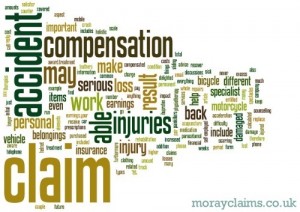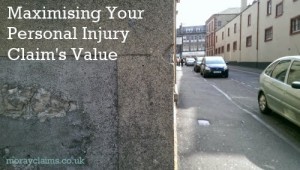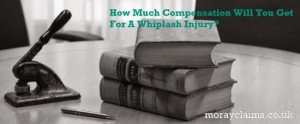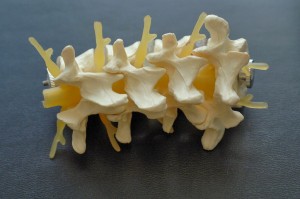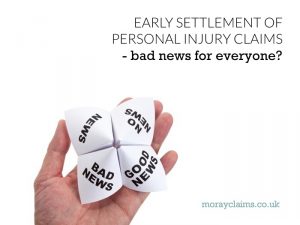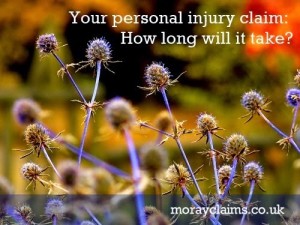If you do any amount of cycling, you will probably have had a near miss or two. Cyclists are vulnerable road users and the risk is always there of an accident or collision with a car, lorry or even another cyclist. Moray has a few designated cycle paths, notably the tracks between Elgin and RAF Lossiemouth and between Forres and Findhorn. However, on numerous minor roads in Moray, the national speed limit is combined with narrow carriageways and restricted visibility. Add to this the ever-increasing volume of traffic on our roads and you can see why an increasing number of cyclists are falling victim to injury as the result of a bicycle accident in Moray. If you are a cyclist unlucky enough to be injured in an accident, you may choose to make a personal injury claim so you can receive compensation for your injuries and other losses. It is likely that your bike will be damaged, possibly beyond economic repair, and you will want any compensation to include an element to pay Continue Reading
Articles from our blog on the Claims Process
Below are articles from our blog which relate to the topic of the Claims Process.
Please also see our main page on the Claims Process
What Can I Claim Personal Injury Compensation For?
The answer to the question "What can I claim personal injury compensation for?" is something which is bound to influence you in deciding whether or not it is even worth your while bothering with a claim at all. If you are injured in an accident and need to make a claim for compensation, there are various possible elements which can make up your claim as a whole. We tend to refer to these as “heads of claim”. Also note that, in this context, “damages” is another word for “compensation”. The way to think about it is that any loss you have suffered as a result of your accident can probably be compensated. Here is a list of some of the most common elements found in personal injury claims. Your pain and suffering The level of compensation you get for your injuries is calculated on a sliding scale. So, the more serious and long-lasting your injuries, the greater the amount of compensation you will receive. Multiple injuries will increase the value of the claim here, though Continue Reading
2 Ways Exaggeration of Injuries Can Damage Your Personal Injury Claim
Exaggerating your symptoms from injuries can damage your chances of claiming compensation Serious injuries can lead to permanent restrictions in things like your ability to work, to care for yourself and others close to you, or enjoy your hobbies. If that is what you claim following an accident, you need to realise it’s likely that all aspects of your life will end up under the microscope. Exaggeration of injuries can damage your personal injury claim. How will you be found out? Your life: nothing hidden You will be shadowed and put under video surveillance. Private investigators will stake out your home. You could be filmed in your garden, getting into and out of your car or doing the shopping. A prime time for observation is when you have to go and see any medical expert appointed by the insurers: they know exactly where you will be and at what times on that particular day. Surveillance cameras may be hand held, mounted in vehicles or in holdalls carried by Continue Reading
Maximising Your Personal Injury Claim’s Value
North Street, Elgin, Moray Your personal injury claim is primarily about money. It’s true that other aims are possible - and often more important than just the compensation. One example is maximising your level of recovery from injuries through rehabilitation provided as part of your claim. Another possible driver is “trying to make a point” so the negligent party takes notice and changes their practice for the future, reducing the chances someone else will be injured in the way you were. It's all about money But personal injury claims are really about financial compensation. The law tries to put you, as the injured person, back in the position you would have been if the accident had not happened – so far as that is possible in money terms. Given the emphasis on money, the aim is to maximise your damages. What are the main factors which have a bearing on how much money you receive (if any) at the end of your claim? Factor 1: Whether your claim succeeds at Continue Reading
How much compensation will you get for a whiplash injury?
Photograph: "Spines" by Nicky Mack Whiplash injuries to the upper spine can range widely in severity. From neck stiffness lasting for a day or two, the symptoms can extend to pain and restriction of movement which persists for months or even years. We have posted on this Blog previously about the “classic” whiplash accident mechanism – usually a road traffic accident involving a rear end shunt. Whiplash remains a controversial injury, which has become a bit of a political football. Because there are no physical signs associated with whiplash symptoms – such as would show up on x-rays or other scans – exaggeration and fabrication of claims is always a possibility. Likely claim value is a factor in deciding whether a claim is worth it or not If you are considering making a whiplash claim, you will be wondering how much your claim is going to be worth. It is reasonable to consider this, as you will want to weigh up whether it is going to be worth the time and Continue Reading
Medical Treatment Following Personal Injury (Keep Going Until You Are Discharged)
"Spine once more" found on flickrcc.net One of the frustrations for solicitors helping victims of accidents with their compensation claims is where medical records show that the injured person did not take up all the treatment which was available to them while recovering from their injuries. The “pain and suffering” value of your personal injury claim depends, broadly, on the severity of the initial injury and the length of time it takes you to make a full recovery. You rarely win if it's "you versus your medical records" Whilst your own evidence about the duration and extent of your symptoms will carry some weight, it is likely to be trumped by anything inconsistent contained in your medical records. So, for example, it will be difficult to argue two years after an accident that you have continuing shoulder pain related to the accident if your GP referred to you for physiotherapy at the 6-month mark and you failed to attend at all or stopped going for treatment before Continue Reading
Fatal Accident Claims in Scotland: Increased Compensation levels
Claims by three members of the family of a man who died as the result of a road traffic accident in Glasgow have been awarded damages totalling £106,500. Lady Wise, in the Court of Session, decided that the award of compensation in a previous similar case had been too low. She set the damages level for each claimant by applying an uplift of approximately 50% on the awards in the previous case. Pedestrian crossing accident Gavin Currie was 25 years old when he was knocked down on a zebra crossing on 28 December 2011. He died in hospital 2 days later. The Court described Gavin as a “fine young man with good employment prospects and a happy and settled family life”. He came from a close-knit family. Only value of claim disputed Liability for the accident was not in dispute but there was disagreement about the level of compensation to be paid to each of his parents and to his brother, Euan, by the insurers of the negligent driver. Tension between Judge and Jury damages Continue Reading
Why are some claims for the same injury worth less than others?
Comparing personal injury claim values can have you going round in circles If you have been injured in an accident and want to get an idea how much your claim might be worth, it’s easy to find sources of information on the internet that seem to be helpful. But it can quickly become difficult to reconcile the awards of damages received by different claimants. Often, you find two people with apparently-similar injuries who received very varying levels of compensation. Why is that? Solatium and “special” damages Personal injury claims are valued under two broad headings: solatium and special damages. In Scotland, your claim for the pain and suffering caused by your injuries is known as solatium (in other jurisdictions, it is often known as “general damages”). Special damages, on the other hand, compensate you for financial losses resulting from the accident – typically, wage loss. So, if we compare two women of the same age who each have a broken wrist of similar nature and Continue Reading
Personal Injury Damages Too Low (According to the People of Elgin – and Beyond)
On 04 May 2013 – a cold and windy day in Elgin - three of us from Grigor & Young / Moray Claims (Ann, Eileen and Peter), took a stall at the Scottish Theme Day run by Elgin Business Improvement District (Elgin BID). Thank you to everyone involved in organising it and all who participated. We ran a competition where we asked people to give their valuation of the injury in the following scenario. Female, aged 42, at the date of the injury and 45 at the date of the hearing, sustained a deep laceration on her posterior left thigh as a result of sitting on a toilet which had a jagged broken edge. The wound bled profusely and she was taken to hospital where it was sutured with seven stitches under local anaesthetic. Approximately two weeks later the wound became inflamed and antibiotics were prescribed. She was unable to work for 10 days and had difficulties sitting down or sleeping on her back for some six to eight weeks afterwards. She was left with a permanent scar measuring 3cm by Continue Reading
Early Settlement of Personal Injury Claims: Bad News For Everyone?
We see this happening much more frequently following accidents involving personal injury. People, who are at their most vulnerable following injury, receive a call from the other party’s insurance company and then a letter offering settlement of their claim at a derisory level. Why? Well, settling the claim quickly is invariably cheaper for an insurer and they know that, without specialist advice, you may not be paid all that you are entitled to receive. If you have suffered a personal injury, it is generally only possible to value the injury part of the claim properly by obtaining medical evidence. The amount your injury is worth depends on things like: the nature and severity of the initial injury; and the length of time it takes you to recover from the injury. Getting medical evidence, including a report from an appropriate medical expert, should ensure that the compensation paid out at the end of the day is fair compensation. And that means “fair” not only to you Continue Reading
If You Go To Court Will You Get 33 Times More Compensation For Your Personal Injury Claim?
We at Grigor & Young / Moray Claims recently dealt with a personal injury claim for a child who had suffered loss of several teeth following a fall in a local-authority-run play park - caused by a defective ground surface. The best settlement offer received from the insurers in negotiations before court action was raised was £750. Raising a court action resulted in a subsequent negotiated settlement of the claim at £25,000 – in other words, 33 times the best pre-litigation offer. Insurance companies are constantly putting forward the line that personal injury solicitors are simply expensive middle men. The insurers maintain that they can themselves fairly assess the compensation that is due and that, if you choose to deal with them directly, you will not be prejudiced. They will negotiate settlement of the claim with you and your claim will not have to go to court. The insurers say that the benefits of this solicitor-less approach go further. If less money has to be spent on Continue Reading
Your Personal Injury Claim: How Long Will It Take?
It is extremely difficult to say how long a personal injury claim will take but the factors involved are not all within the control of the other party or their insurers, despite what some people think. “I know they will probably try to drag it out for years,” is a comment we often hear from people considering making a compensation claim for injuries suffered in an accident. "They" refers to the person or organisation responsible for paying the compensation that is due – which is usually, but not always, an insurance company. Your personal injury solicitor will constantly be keeping an eye on what is the next step required in relation to your claim. At any given time, your solicitor should be able to give a best estimate of how much longer it will all take. Factors which could have an effect on the length of your claim Some things which will affect how quickly your claim can proceed to a conclusion are: How complex the case is; The severity of your Continue Reading
